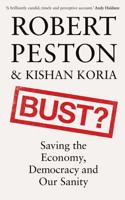Publisher's Synopsis
The states of Egypt, India, Mexico and Turkey have all developed extensive public enterprise sectors and have sought to regulate most economic activities outside the state sector. Their experiences have been typical of scores of developing countries that followed similar paths of industrialisation. This 1993 study examines the origins of these state sectors, the dynamics of their growth and crises, and the efforts to reform or liquidate them. It is argued that public ownership creates its own culture and pathology that are similar across otherwise different systems. The logic of principal-agent relations under public ownership is so powerful that it swamps culture and peculiar institutional histories. While public sectors accumulate powerful associated interests over time, against most predictions these prove relatively powerless to block the reform process.










